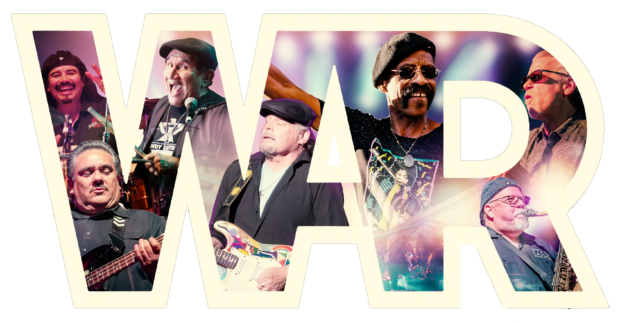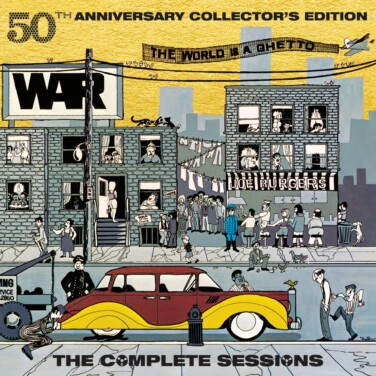
November 27, 2023
WAR Co-Founder Lonnie Jordan and Producer Jerry Goldstein Discuss Deluxe 50th Anniversary Vinyl Remaster of Iconic ‘The World is a Ghetto’
Via Eurweb.com
*This Friday, November 24, one of the greatest albums of the ’70s – The World is a Ghetto – by one of the greatest bands of all-time – WAR – is receiving an unprecedented deluxe 5-disc numbered color vinyl limited edition box set (only 2,000 copies pressed) for Record Store Day/Black Friday 2023.
The album, released in 1972 as a 6-song single disc, became a multi-platinum-seller on the strength of not only its hit singles, “The Cisco Kid” and “The World is a Ghetto,” but also its immediate and long-enduring mystique as that rare flawless LP that could be played from beginning to end and take listeners on a hypnotizing, introspective journey. This was accomplished via stretched-out mood pieces “City, Country, City” and “Four Cornered Room,” the hand-clappin’ bounce of “Where Was You At,” and the mind-bending finale “Beetles in the Bog.”
Now, The World is a Ghetto has received an astounding retrospective treatment that includes a remaster of the album as it was originally released on one disc, 6 previously unreleased tracks from the sessions on another disc, plus 3 additional vinyl discs that contain – on one side apiece – the box set’s true motherlode. Each side takes you on a journey through the evolution of a song from germination to its initial rough mix (i.e., before overdubs, sweetening, and final editing).
All this music astoundingly reveals the collaborative magic of original band members Howard Scott on electric and acoustic guitars and lead vocals, Lonnie Jordan on piano, electric piano and organ and lead vocals, B.B. Dickerson on electric bass and lead vocals, Charles Miller on saxophones and flute, Lee Oskar on harmonicas, Harold Brown on drums and vocals, and Papa Dee Allen on congas and percussion.
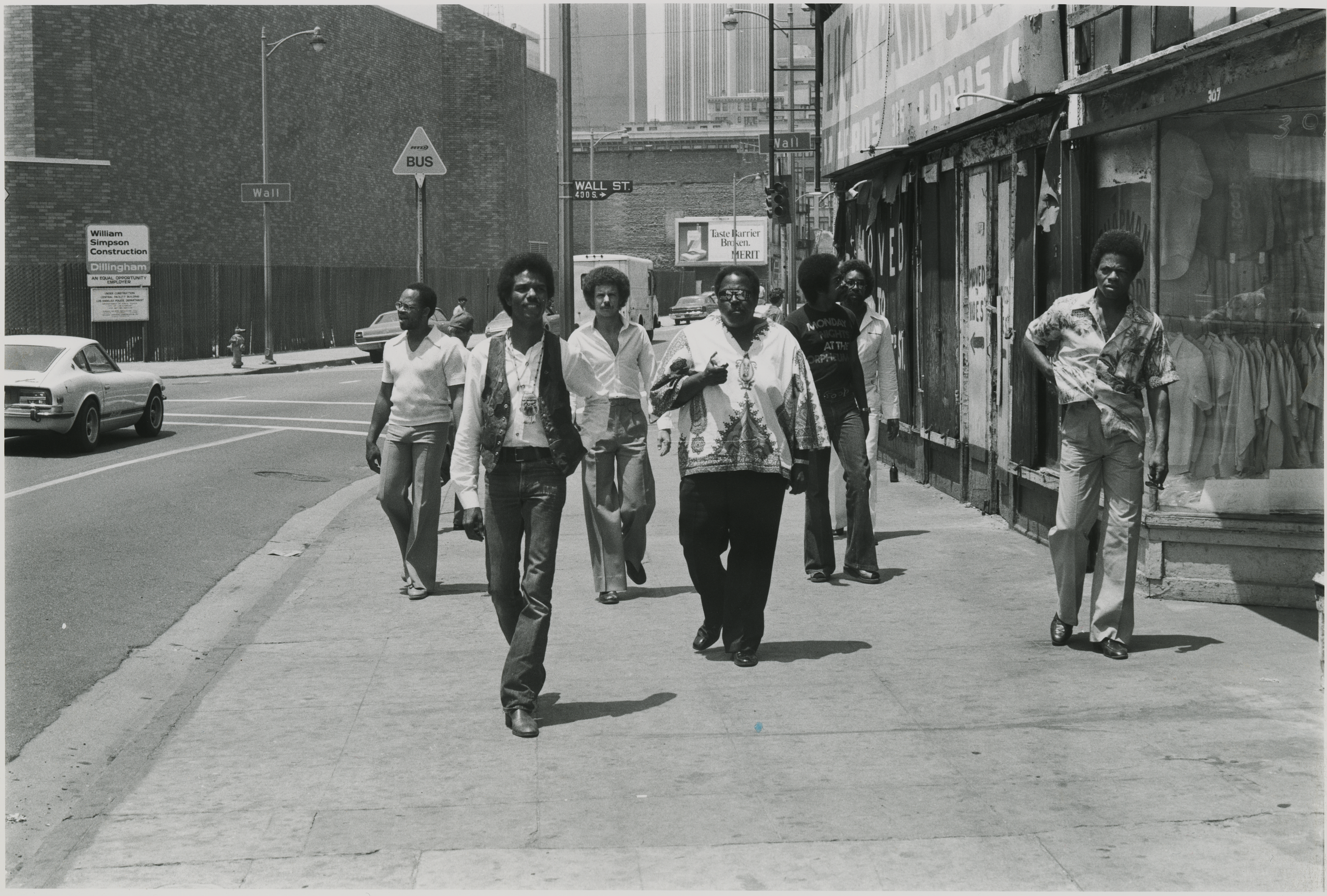
This level of deep dive album session documentation is rarely if ever done. And when it is, it’s usually for legacy rock bands or iconic solo artists such as Miles Davis or Marvin Gaye. For a multi-racial (primarily African American) band that’s music defies simple stylistic categorization – traversing R&B, Jazz, Soul, Funk, Latin, Blues, and Gospel – to have one of its albums analyzed for public fan consumption in this manner is a Godsend. This package does not disappoint. For any fan of WAR, this album or Pop music history, it is a riveting revelation.
Last month (October 25th), The Grammy Museum in downtown Los Angeles hosted a special evening to celebrate this box set. Following an impassioned introduction by Recording Academy Chairman of the Board James “Jimmy Jam” Harris III, Lonnie Jordan – currently the only original member of War in the band that has the name, along with record producer Jerry Goldstein were interviewed by Adam Weissler about the making of The World is a Ghetto. This was followed by a generous 45-minute greatest hits set (including “Spill the Wine,” “Low Rider,” “Why Can’t We Be Friends” and more) by the current incarnation of the band.
No longer an African American ensemble, this multi-cultural group led by San Diego-born Leroy “Lonnie” Jordan consisted of drummer Salvador Rodriguez and percussionist Marcos Reyes – both from Tijuana – bassist Rene Camacho from Colombia, guitarist James Baker from Santa Monica, harmonica player Mitch Kashmar from Santa Barbara, and saxophonist Scott Martin from Long Beach.
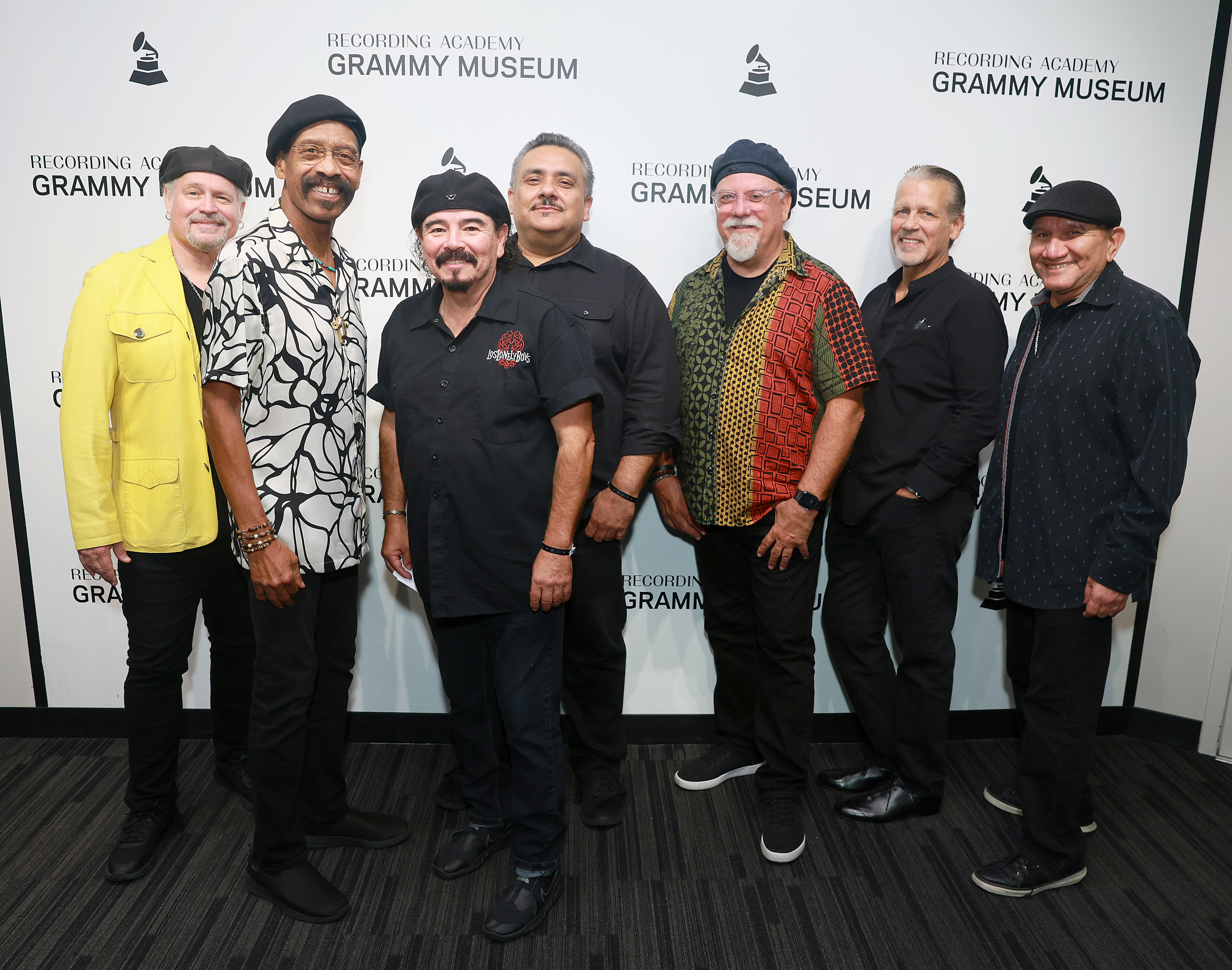
In the interview below, prolific southern California based music journalist A. Scott Galloway conducted a 3-way phone interview with Lonnie Jordan (who turned 75 on November 21st) and Jerry Goldstein (83) about The World is a Ghetto LP (named Top Album of 1973 by Billboard Magazine), the outstanding new deluxe box set, and the ongoing professional split between Jordan with surviving original members Howard Scott, Lee Oskar and Harold Brown who now lead their own group, Lowrider Band.
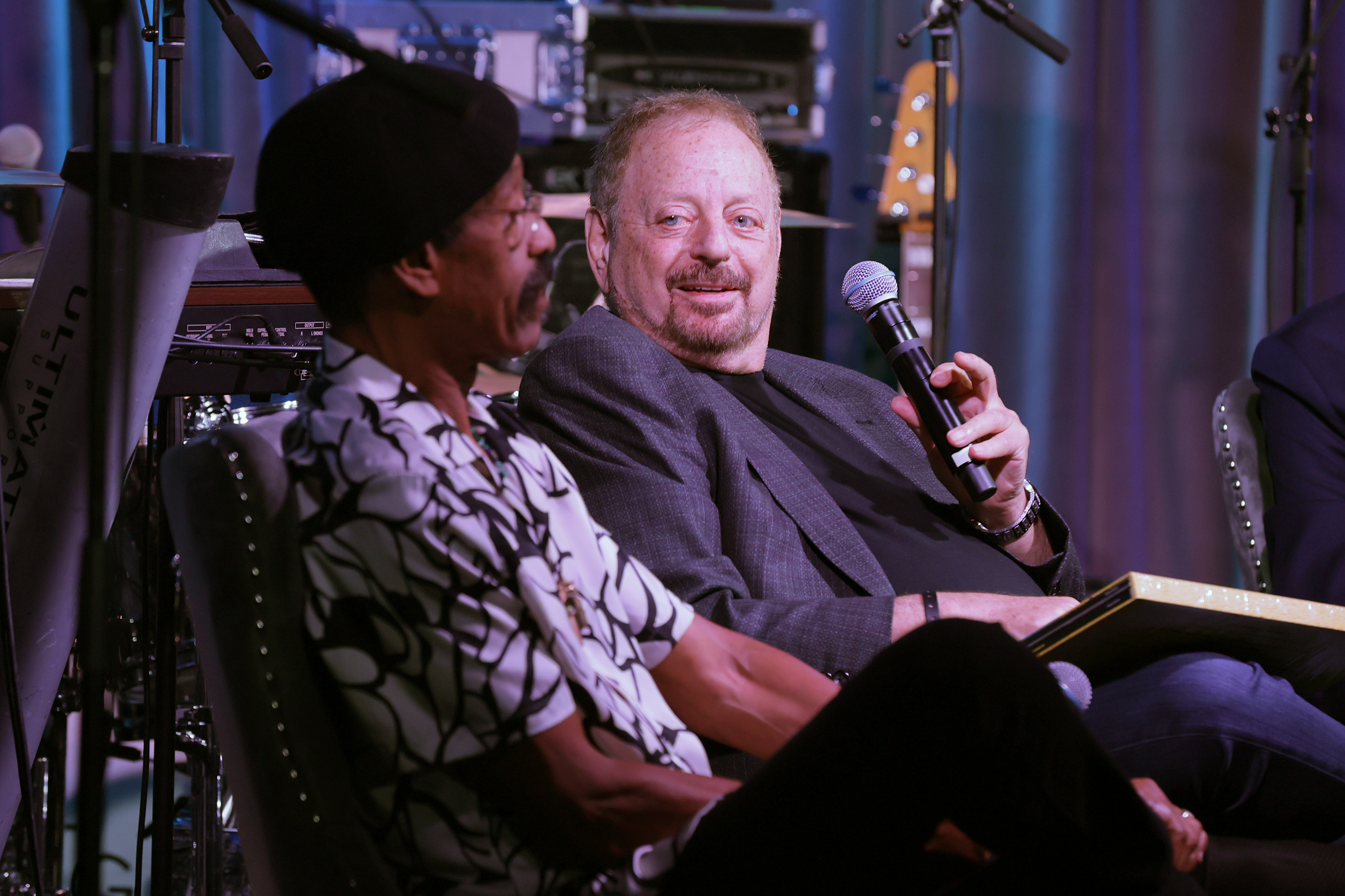
GALLOWAY: Jerry, what inspired you back then to hold onto all these studio session tapes? Throughout Avenue/Rhino Records’ history, you have gifted fans easter eggs of outtakes, alternates, and edits. However, this box set is truly next level. Was this your intention all along, even before CD and vinyl box sets existed?
GOLDSTEIN: Actually, I’ve held onto everything from the first note of Eric Burdon & WAR to the stuff we’re doing now. That’s just my nature. There’s a value even in outtakes. You never know what’s gonna happen and here we are. We found 6 bonus tracks that were never released. And then the concept of doing ‘The Making of (song for song) – no one’s ever done that! Because of the way that WAR recorded, we wanted to share that. The making of’s are basically the first note of (the song) to the final take. Everything it took to get there. And the final takes are raw – uncut, unmixed. They’re almost like alternative mixes.
This album took 29 days to make from first note to mastering. Which is like a year short of any other album. This is a jam band. You never know which part of the jam is gonna be a record someday. We even had our own soundstage, remote truck and recorded a lot of the live stuff on 16-track.
GALLOWAY: What was the mindset going into this third WAR LP (after 2 albums with British singer Eric Burdon)?
JORDAN: Had Jerry not held onto the stuff that we did, it would have all been thrown away and lost. The fact that he held onto everything, it started coming into focus that this band was very unique. Believe me, at the time that we were happening on the radio, I never thought that would happen because we were so different. Most groups were all about loud guitars. We had the Latin, the Reggae, the Funk, a little Jazz and a little Classical. I had no clue that we would ever be heard on the radio or get to this point where we are now.
GALLOWAY: Eric Burdon & War scored a major crossover hit on Rock, Top 40 and Soul radio right out of the box in 1970 with “Spill the Wine.” A year later, the first WAR album without Eric does nothing but the follow-up, All Day Music, gets you two bona fide hits with the title track and “Slippin’ Into Darkness.” Did those hits put pressure on the band to come up with more hits – either internally or from your record company, United Artists?
JORDAN: Speaking for myself, I was in shock to hear our music on the radio which was great. Unfortunately, when you’re young, dumb, and full of fun, the success part can take you somewhere else. But that point of success took us to the next album and the next. We just kept boldly going where no band has gone before. We weren’t used to being in the studio. It was pretty much an experimental journey.
Once our music started getting played on the radio, we started having major concerts and more people coming to see us. For most bands, that can be hard. That’s not natural to have all these people coming at you, A lot of people can’t deal with that. But I dealt with it and I thank God I’m still here to talk about it.
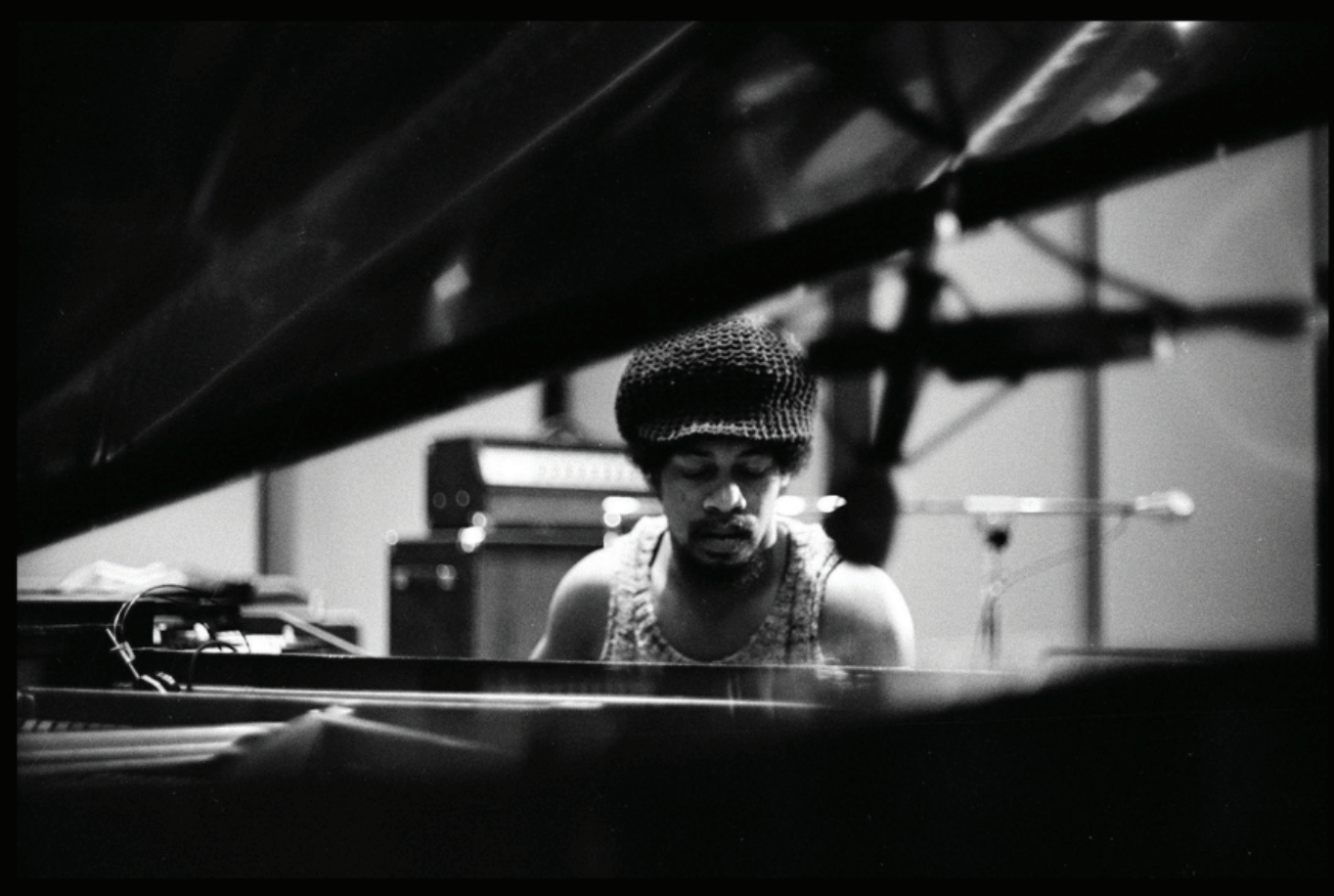
GALLOWAY: Are you saying even after recording four albums, you went into the fifth one as wide-eyed as you went into the first one?
JORDAN: The studio was just a tool for us to go in, socialize with one another, JAM, turn the tape on and (not) lose it. Our music was the love of our lives. We weren’t about to change for anyone. We didn’t know how! There was no pressure on us. Jerry knew all this and just took all those elements into one room – like a church – and we got very creative about expressing our feelings to the public.
We were a reflection of the streets. And our music was Universal Street Music.
As far as pressure from the record label, that was a personal problem – for them! Jerry Goldstein managed to take that (pressure) to the side, put people up on the wall and say, “Hey, this is what we are and if you can’t deal with it…good-bye!”
GOLDSTEIN: (laughter) Yeah, that’s pretty much it! Actually, the pressure was on me because I had to take these jams and make commercial music out of them. Maybe this made me a superstar editor. This was before computers. We were cutting tape. And, yes, I had pressure from United Artists. The first album (WAR – 1971) was not a big hit. They wanted to get (outside) people to write for them. I said, “No, we’re going to do it ourselves. There’s just an evolution that’s gotta happen.” The second album (All Day Music – 1971) was really the beginning of our evolution of free form creating in the studio. By The World is a Ghetto (1972), it was all magic – the most incredible month I ever spent with any band in the studio. If you listen to “The Making of” tracks, you hear them talking to each other, “Let’s go from this part to there,” That’s the beauty of it: a musical family that really hears and feels each other. Once we finished (the music), we ‘d write songs (lyrics) to it then edit it down to make it commercial. These were fantastic moments in all our lives.
GALLOWAY: From your perspective, Lonnie, what were the primary messages of “The World is a Ghetto” and “Four Cornered Room” – lyrics that – over the decades – have been open to quite a few interpretations?
JORDAN: Like many of our songs, they’d start out as a totally different story or mood. As we sat around microphones, we started tailoring the songs to what you hear today. We were nitpicking and could go a million ways not really knowing what main (direction) to go. That’s where Jerry came into the picture with a possible story or theme.
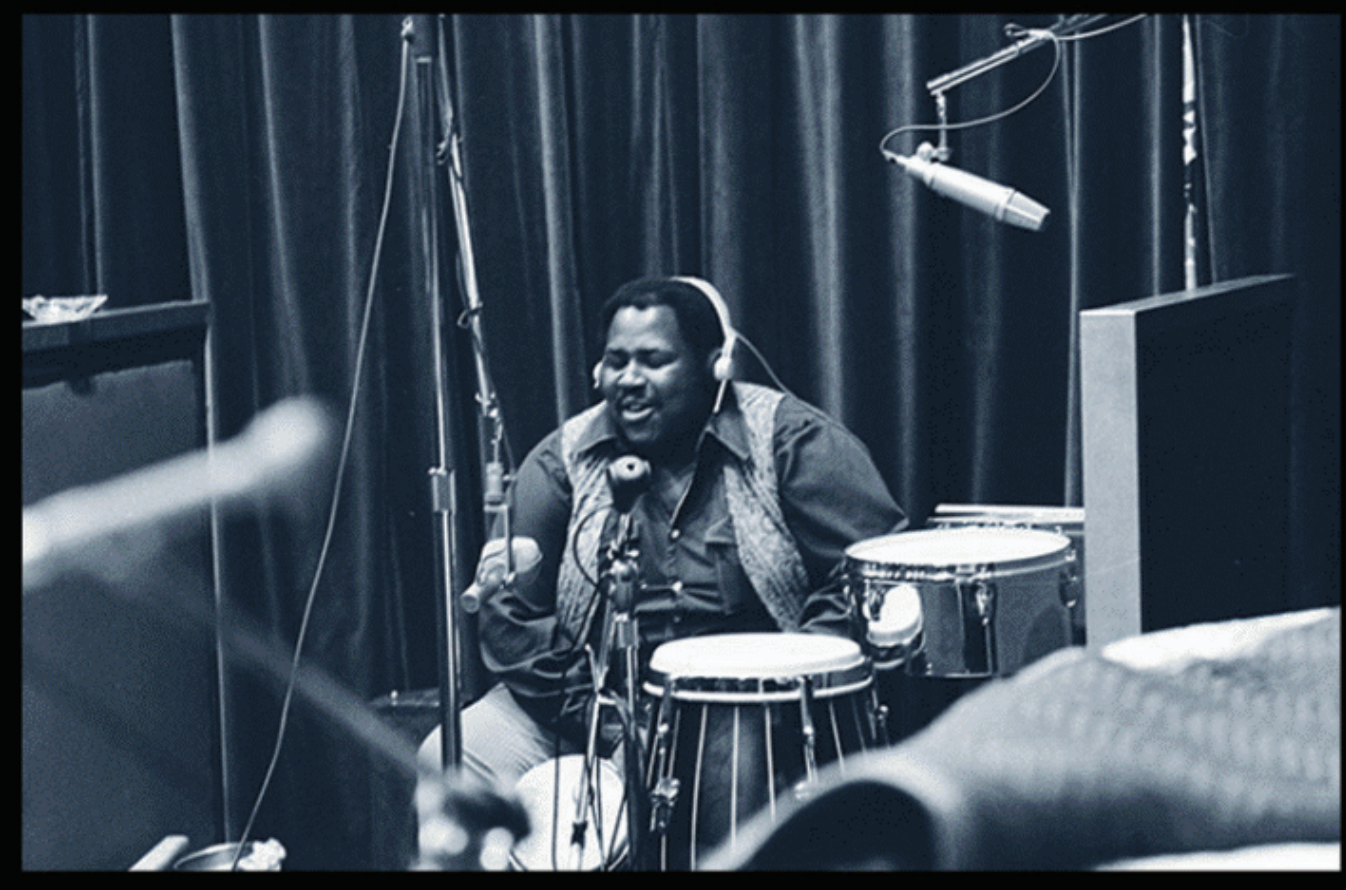
“The World is a Ghetto” was started by our percussionist Papa Dee Allen who had a story called “Ghetto Man,” a Black superhero who could bring peace to the world. We started thinking about the wars going on in our backyards and the war in Vietnam. Finally, we came to the conclusion that we are raging war against war, using music as our weapon of peace. Instead of shooting bullets, we shot melodies, harmonies, and rhythms.
Also, people in Beverly Hills can get roaches in their house just like anybody else.
“Four Cornered Room” was a song brought in by our bass player, B.B. Dickerson. It didn’t have a title yet. It was more of a pop song with a faster tempo. But we took it to a whole `nother place – a slow, trippy blues.

GOLDSTEIN: During that time, we were in the middle of a lawsuit. Right after we settled happened to be when we went in to do that song. So that was (part of the inspiration) for what (drummer) Harold Brown was talking about. [“Thinking, talking we’ve ironed out our problems for a much better understanding”].
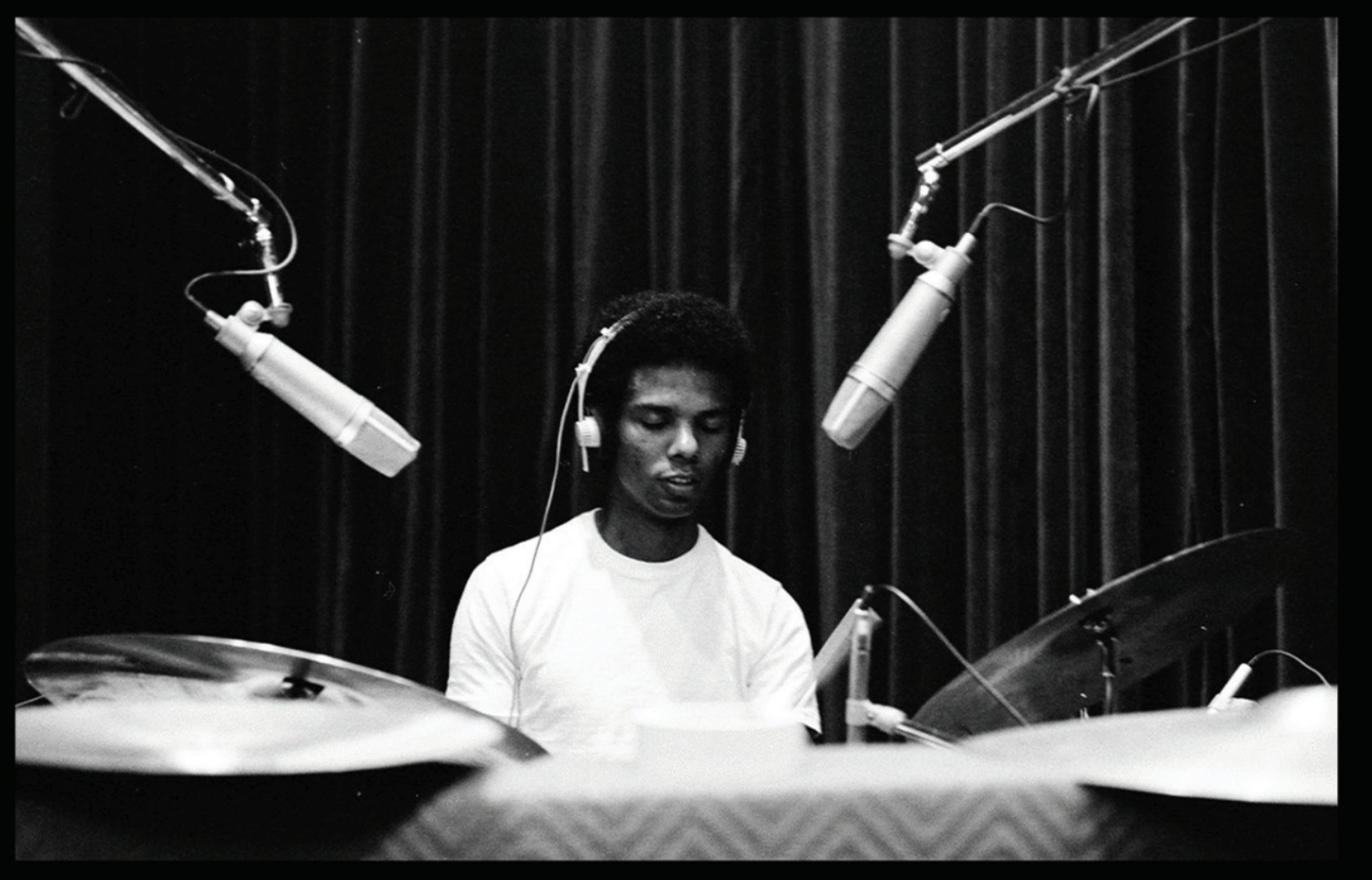
JORDAN: After Harold, then you have (Lonnie singing), “As I sit in my four cornered room / I can feel all y’all’s deepest emotions.” It’s kinda like psychiatry.
GALLOWAY: Or a séance.
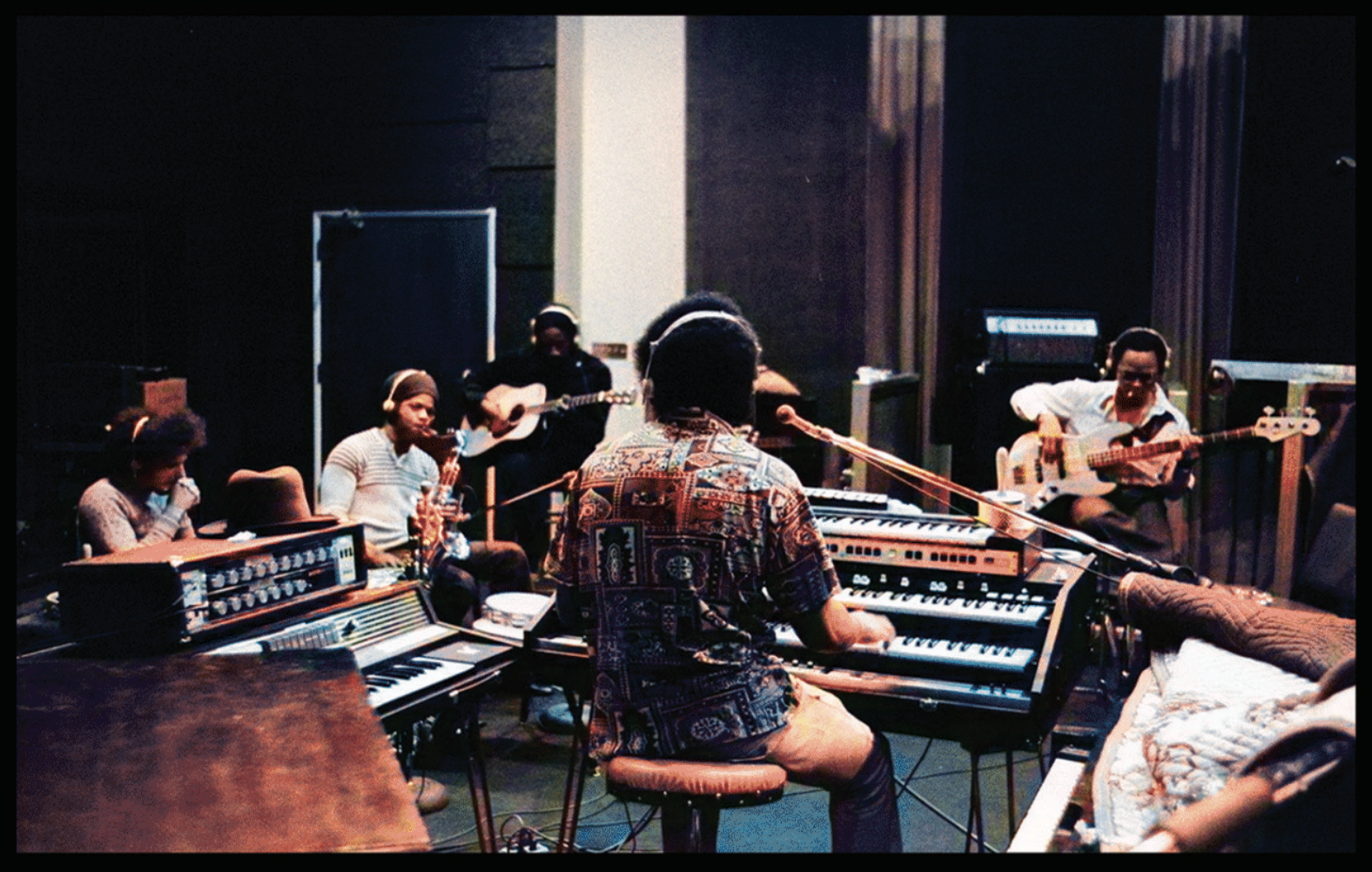
JORDAN: B.B. went to India once and saw that song being used at a funeral while they were carrying a casket to the resting place… But again, all our songs go through different movements because this band is a movement. And our songs are like a book or a movie. Keep in mind, playing with Eric Burdon taught us how to improvise. Songs like “Four Cornered Room” and (later) “Deliver the Word” captured our attitude of making a movie that we didn’t see but it was in our minds. “City, Country, City” was originally made for a movie (titled “The Grove” during production in 1970 but released as “A Name For Evil” in 1973).
GALLOWAY: I’ve had the honor of interviewing all but two original members of WAR: Papa Dee Allen and Charles Miller. I deeply wish I could have spoken to them. Charles was a powerful presence on flute but especially saxophones. And his solos here on “City, Country, City” and “The World is a Ghetto” are otherworldly masterpieces. On “The World is a Ghetto,” there is a section where he overdubbed playing against himself that so brilliantly mirrors the madness that can rage inside the mind when we are disillusioned… How did that come about?”
GOLDSTEIN: The original solo was on the basic track (which is heard at the end of “The Making Of”). Then I said, “You wanna try it again?” He said, “Of, course.” For some reason, his original solo was playing back in his headphones. So, he started playing (the new solo) against himself. I didn’t realize it until I started mixing. I pulled it in and out of the mix as I needed it. It wound up to be one of the most incredible solos I ever heard. Charles Miller was a genius, world-class sax player…unbelievable.
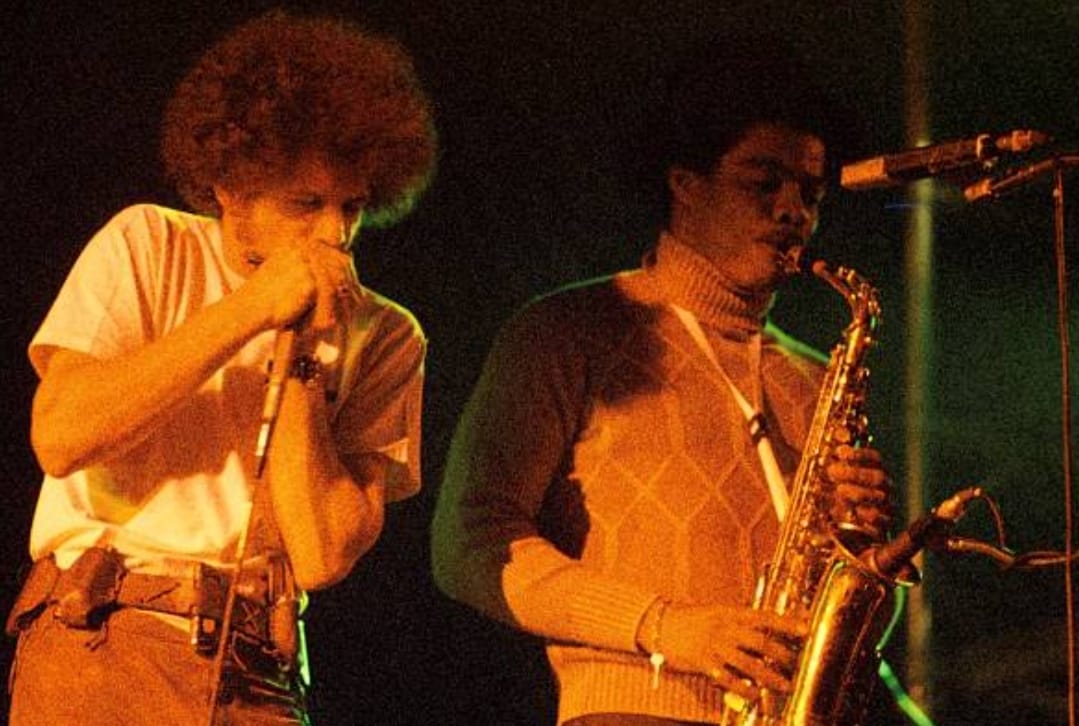
GALLOWAY: Lonnie, how is it that you have had this impasse with the remaining original members of WAR that has lasted (nearly 30 years) given the fact that you guys were like brothers back when you were creating all of this now-classic music?
JORDAN: It’s no different than me being separated from my four brothers that I grew up with. When I left the house, I ended up with a new family – the guys that you wonder how I could separate from. In this case, we became married, we created beautiful children and the children were the music. This music became healing to other people. We might have gotten lost mentally along the way. As you get older, you find a new road. Unfortunately, we had disagreements on a lot of things that didn’t tally up for the future. I’m an individual. The other guys are not. When you can’t come to an agreement about anything then that means you can’t come to an agreement about music. And the people will definitely feel that. My main concern is my ‘rock and roll hall of fans.’ I have to keep playing for the fans. They are my healing power.
GALLOWAY: Do you foresee or want to arrive at a place where you and the other remaining original members can reconcile musically? Are you still friends?
JORDAN: We are friends. I recognize everything they have done for and with me, and me with them. If it wasn’t for them, I wouldn’t be here. And vice versa. I love the guys. I have no animosity. But as far as getting together again, unfortunately, that’s like asking me if I will ever get together with my ex-wife…and I can’t do that. We’d still be dealing with the same issues again which I’m too old for – we’re all too old to go through that saga again. There are too many differences of opinion. But I can always reminisce on what we’ve done.
GOLDSTEIN: In reality, the band can’t get back together because three of the members aren’t here anymore. What we had as a 7-piece group we don’t have anymore, no matter what we do. If being together means people not agreeing and the music isn’t working then it’s not the same thing anymore and it doesn’t work. We needed to keep WAR going. And Lonnie never stopped. And it’s really fantastic. You saw the group at The Grammy Museum.
GALLOWAY. I did. It’s a whole new group. My overall takeaway is that it’s lighter (in spirit) and sunnier (in sound) – a lighter approach to music that originally had a darker edge.
JORDAN: The original band was versatile. And we’re still just as versatile as we were back in the day. Nothing has changed. Unfortunately, a lot of musicians that play with me don’t really know the vibes that the band was back in the day. It was a vibe that we didn’t even know. To play and don’t think. Once you start thinking then it goes somewhere else. You might as well pick up a book and read the music. We don’t do that. We play from the gut, the ears, and the mind, and bounce off of the (public) because that’s what it’s about. That’s the way we write our music – based on the people and off of experience – like Jimi Hendrix said.
GALLOWAY: Was there a consideration to have the remaining original members take part in the making of this 50th anniversary of “The World is a Ghetto” box set liner notes-wise or for historical consultation?
GOLDSTEIN: Well, I asked the guys to come in and do interviews. Because we’re in litigation, they didn’t want to. It’s that simple.
JORDAN: But they’re still on the album and you can hear them (creating the music).
GOLDSTEIN: And we have all those creations saved and cataloged. And you’re gonna get to hear a whole lot more in the future. We’re going to do the same thing we just did with The World is a Ghetto (1972) sessions with Why Can’t We be Friends (1975). We couldn’t do it with Deliver The Word (1973) because everybody was so busy celebrating the success of The World is a Ghetto, we never got around to making (a lot) of music for Deliver The Word. It’s a fabulous album. We did what we needed to do. We had to fuse a bunch of sessions. It was great what we got…but I didn’t get any extra music.
JORDAN: There wasn’t that many takes or in-and-out for Deliver the Word. What you hear is basically what it was.
GOLDSTEIN: When we got to Why Can’t We Be Friends, that was probably the best of them all – the mature band playing at its best.
JORDAN: Scott, you have to realize that we are a lot older now. A lot of us have learned much more. I feel that the other guys would prefer not to be here with me. I don’t know how they feel about me being with them… But I feel like I have more energy that I want to give to the people and they give back to me. And I don’t ever want to give (the people) any negative energy. That’s all.
GOLDSTEIN: You can never say never. Neither Lonnie nor I really know if there’s gonna be a reunion show one day. It could happen. It could be the Rock & Roll Hall of Fame. Everybody would get their awards and we’d probably jam together again. It would be fine.
GALLOWAY; If you make another album with the current band under the name War, would it be the same collaborative “everybody in on the writing” thing like the original War or will it primarily come from your perspective, Lonnie?
JORDAN: We don’t know `til we go in the studio. Right now, whatever concept Jerry and I have, we take that into the studio and create something beautiful. Now as far as the (rest of) the band, they’re still learning how to be like we were back in the day. I don’t necessarily want them to duplicate or try to copy what we were because then they will be a cover band. I just want them to feel and not think. If you don’t feel then Jerry and I can take it from there because we know the feel. And we can do that with the tools that exist in the studio today.
GOLDSTEIN: We know what makes a War album a War album. And it’s very possible we can take the current band into the studio and do some of the album with demos. And Lonnie and I can do some things together cuz we really understand it. We may get some guest players to come with us and do what we want to do.
JORDAN; Back (in the 70s), it was us in the studio. Jerry producing and me coordinating. We were actually the ones who coordinated everything.
GOLDSTEIN: Lonnie and I spent more time in the studio than everybody together with the finishing. The rest of the guys basically played them and sang them. We did the mixing. But when it came time for the editing, even Lonnie ran out of the studio! Editing in those days was painful. You had to think about all the edits. Some worked. Some didn’t work. Every cut took a while to get there. It was insane. But again, that was my love and my passion. So, I had to make this commercial enough to play on the radio.
JORDAN: Between the mixing, editing, mastering, and our engineer Chris Huston (at Crystal Industries, Inc. recording studio), that was the process – an integral part of the sound of War – regardless of us musicians.
GALLOWAY: Are you going to do anything special touring-wise behind this 50th Anniversary of The World is a Ghetto?
GOLDSTEIN; Coming up, there will be a few concerts of The World is a Ghetto but they’ll still do the rest of the hits. For the most part, we just tour and do what we do.
JORDAN: We also want to tour with a symphony orchestra where we will feature The World is a Ghetto and maybe some other cuts.
GALLOWAY: In closing, tell me about the new holiday single you just released, “Yes, It’s Christmas?”
JORDAN: We’ve never done a Christmas single or album. It just so happened that the record label (Avenue/Rhino) asked if we could do a Christmas song this year. We said, “Yes, of course.” Jerry had this idea of using “Summer” (a one-off hit single for War in 1976) and changing the lyrics into a Christmas song. He actually re-wrote the lyrics, and I went in the studio and re-sang the vocals. We just added a few more elements to make it more ‘today’ and pretty much married it all together with Pro Tools. After all these years, we finally have a Christmas song. Finally!
GOLDSTEIN; We always wanted to but never got around to it. We put some bells on it, remixed it and there we are. We do things that nobody ever did because it’s all organic. It just comes.
– A. Scott Galloway
